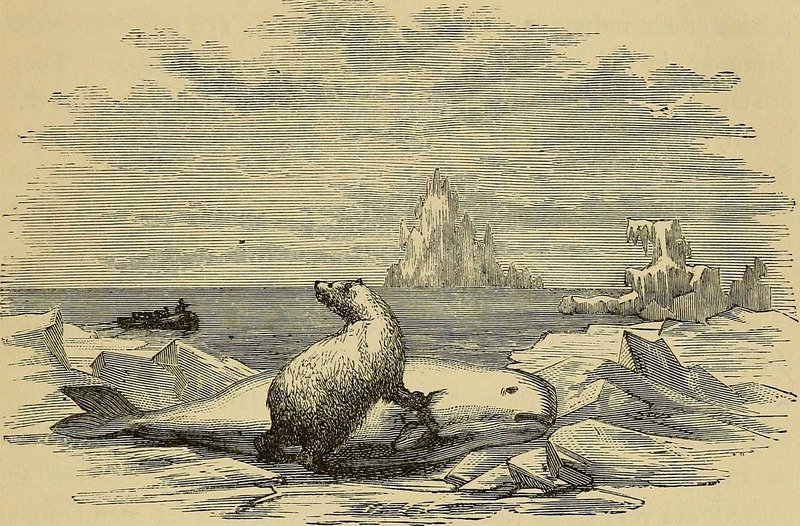|
| Query: beluga | Result: 112th of 203 | |
polar bear (Ursus maritimus), white whale (Delphinapterus leucas)
| Subject: | polar bear (Ursus maritimus), white whale (Delphinapterus leucas)
| | Poster: | Wiki Photos (---@---.---)
| |

| Resolution: 1860x1224
File Size: 928449 Bytes
Upload Date: 2017:05:15 18:29:12
|
POLAR BEAR AND WHITE WHALE.
Title: Animal products;
Year: 1877 (1870s)
Authors: Peter Lund Simmonds, 1814-1897.
Subjects: Animal products. Domestic animals.
Source book page: https://archive.org/stream/animalproducts00simm/animalproducts00simm#page/n418/mode/1up
Source: https://commons.wikimedia.org/wiki/File:Animal_products;_(1877)_(14776878395).jpg
The polar bear (Ursus maritimus) is a carnivorous bear whose native range lies largely within the Arctic Circle, encompassing the Arctic Ocean, its surrounding seas and surrounding land masses. It has evolved to occupy a narrower ecological niche, with many body characteristics adapted for cold temperatures, for moving across snow, ice and open water, and for hunting seals, which make up most of its diet.
The beluga whale or white whale (Delphinapterus leucas) is an Arctic and sub-Arctic cetacean of the family Monodontidae. This marine mammal is commonly referred to as the beluga, melonhead, or sea canary due to its high-pitched twitter. |
^o^
Animal Pictures Archive for smart phones
^o^
|
|